Graduate faculty eligible to serve as major advisors of graduate students
|
|
Nathan Alder, Professor, PhD Biochemical and biophysical approaches to studying the structure, function, and biogenesis of membrane proteins; fluorescence-based investigation of membrane protein complexes and protein trafficking in mitochondria; membrane bioenergetics; organelle biogenesis. Alder Lab |
 |
Andrei Alexandrescu, Professor, PhD High-resolution solution NMR of protein structure, folding, dynamics, and association; amyloids; phage/virus and pathogen proteins; unconventional zinc fingers; mitochondria; metabolomics. Alexandrescu Lab |
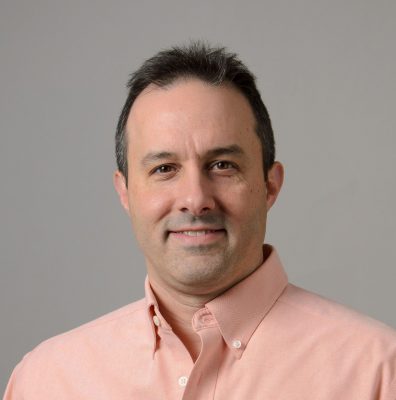 |
Kenneth Campellone, Associate Professor, PhD Our research goals are to determine (1) how the cytoskeleton controls the organization, shape, and movement of cells and their internal components; (2) how cytoskeletal remodeling is altered by infectious microbes and genetic mutations; and (3) how cytoskeletal functions affect biological aging. We use a combination of bioinformatic, genetic, biochemical, molecular, cellular, and organismal approaches to study these processes. Campellone Lab |
 |
Leighton Core, Associate Professor, PhD The goal of our lab is to determine how changes in RNA transcription and processing drive changes or maintenance of cellular states during development or disease progression. Towards this goal, we primarily apply genomic techniques and bioinformatics to uncover the full transcriptional ‘signatures’ of various cell types as well as the fundamental mechanisms of transcription that underly them. Core Lab |
 |
Jelena Erceg, Assistant Professor, PhD 4D genome architecture, functional genomics, epi/genetics, gene regulation, developmental biology, evolution Erceg Lab |
 |
Daniel Gage, Professor, PhD, Associate Head of Undergraduate Research and Education Molecular genetics of plant-microbe interactions; bacterial physiology; regulation of bacterial gene expression in response to extracellular signals. Gage Lab |
 |
Charles Giardina, Professor, PhD Studies of eukaryotic RNA polymerase II transcription regulation; mechanisms governing transcription of stress-response genes; the nature of RNA polymerase II interactions at the promoter. Giardina Lab |
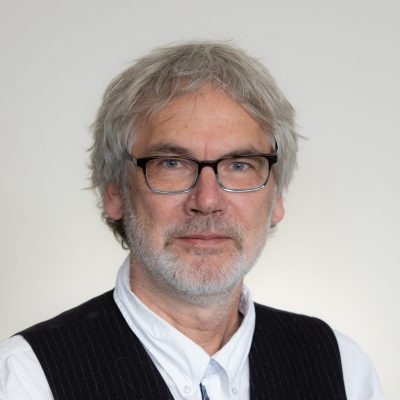 |
J. Peter Gogarten, Board of Trustees Distinguished Professor, PhD Origin and early evolution of cellular life; molecular evolution; horizontal gene transfer; diversity within microbial populations; selfish DNA; molecular parasites. Gogarten Lab |
 |
David Goldhamer, Professor, PhD Regulation of cell fates in mammalian development; transcriptional control and function of skeletal muscle regulatory genes; muscle stem cell function and plasticity; mechanism of heterotopic bone formation in human disease. Goldhamer Lab |
 |
Stacey Hanlon, Assistant Professor, PhD "How does the cell ensure that meiosis is fair? The Hanlon Lab studies genetic renegades and the mechanisms in place to keep selfish genetic elements from gaming the system. We use classical genetic and modern cell biology techniques to examine the dynamics of selfish B chromosomes during female meiosis in the fruit fly, Drosophila melanogaster Hanlon Lab |
 |
Aoife Heaslip, Associate Professor, PhD Toxoplasma gondii host-pathogen interactions; roles of myosin and actin in vesicle transport and organelle positioning inT. gondii. Heaslip Lab |
 |
Sarah Hird, Associate Professor, PhD Host-microbiome evolution, gut microbiota, bioinformatics, microbial ecology, ornithology, phylogeography. Hird Lab |
 |
Jonathan Klassen, Associate Professor, PhD Microbial community ecology, especially using the fungus-growing ant symbiosis as a model system to study the evolution of microbial interaction networks; microbial natural product genomics, evolution and chemical ecology Klassen Lab |
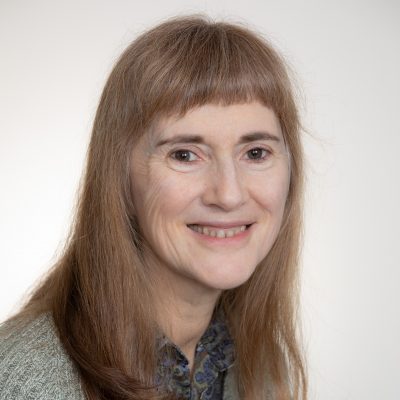 |
Juliet Lee, Associate Professor, PhD The regulation of cell movement; mechanochemical signal transduction; the role of intracellular calcium; cellular force production and its relationship to adhesion formation and cytoskeletal dynamics. Lee Lab |
 |
Michael Lynes, Professor, PhD Genetic and biochemical control of the immune response; membrane structure and function during development; mechanisms of autoimmune dysfunction; multiplexed surface plasmon resonance imaging microarray assessments of biological signatures. Lynes Lab |
 |
Eric May, Associate Professor, PhD Computational and theoretical biophysics and biochemistry, with an emphasis towards understanding conformational/phase transitions and the mechanical and thermodynamic properties of biological materials. May Lab |
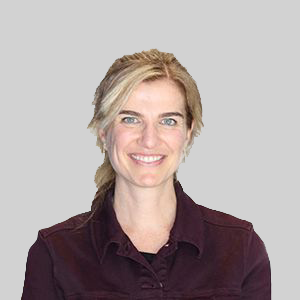 |
Barbara Mellone, Professor, PhD Genome inheritance and stability, chromosome dynamics during cell division, epigenetics. Mellone Lab |
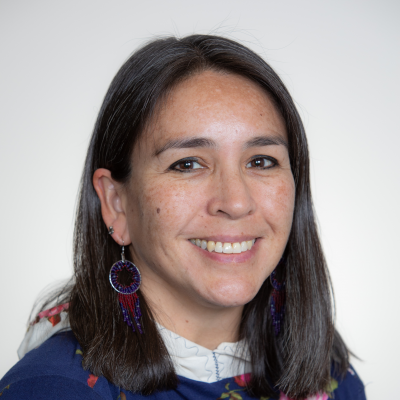 |
Kat Milligan-McClellan, Assistant Professor, PhD Our lab focuses on how host genetic background contributes to the balance between the immune response to microbiota in the gut and intestinal microbial membership. Milligan-McClellan Lab |
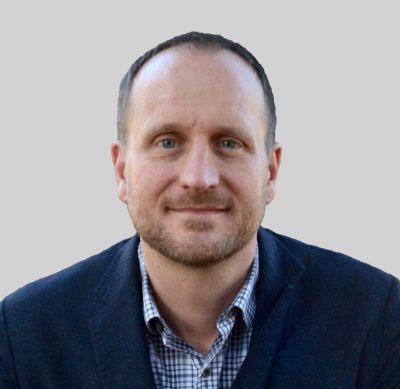 |
Dylan Murray, Assistant Professor, PhD Mechanistic, molecular view of how biopolymers assemble functionally and pathologically. We employ a multi-faceted experimental and computational approach centered around magnetic resonance. RNA granule formation and aggregation in neurodegenerative disease; intermediate filament assembly and defects associated with cancers and pediatric disorders; and the structure of the plant cell wall with applications for engineering fossil fuel alternatives and drought tolerance. |
 |
Craig Nelson, Associate Professor, PhD Molecular biological, genetic, genomic, and computational analysis of the evolution of developmental processes and organismal complexity. Nelson Lab |
 |
Spencer Nyholm, Professor, PhD Host-microbe interactions; symbiosis; relationship between beneficial bacteria and the innate immune system; comparative immunology. Nyholm Lab |
 |
Michael O'Neill, Associate Professor, PhD Molecular genetics of vertebrate development; molecular mechanisms of genomic imprinting; evolution of genomic imprinting; genetics of imprinting and behavior. |
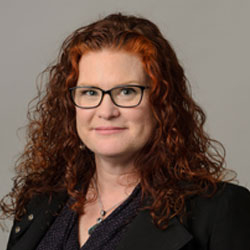 |
Rachel O'Neill, Board of Trustees Distinguished Professor, PhD Genetics of speciation; mammalian chromosome evolution; genome evolution and remodeling; transposable elements and retroelements; hybridogenesis and clonal inheritance in vertebrates; epigenetics. R.O’Neill Lab |
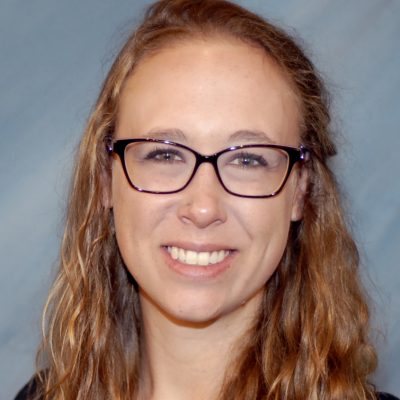 |
Kristen Ramsey, Assistant Professor, PhD Integrating rigorous molecular biophysical approaches with cell-based functional assays to define the biochemical and biophysical mechanisms of key interactions by the RIG-I-like receptor (RLR) family of innate immune RNA sensors. This work will form the basis for further understanding the fundamental biology of pathogen-sensing and signaling by RLRs |
 |
Victoria Robinson, Associate Professor, PhD, Associate Department Head of Graduate Research and Education Genetic, biochemical, and structural methodologies to study novel families of bacterial GTPases as targets for antimicrobial development. Robinson Lab |
 |
Michel Geovanni Santiago-Martinez (Geo), Assistant Professor, PhD Our Microbial Ecophysiology Lab is focused on understanding the regulation of cellular processes in methanogenic and non-methanogenic archaea, and their actual role in free-living environments and microbiomes associated to animals and plants. MEB Lab |
 |
Carolyn Teschke, Professor, MCB Department Head In vivo and in vitro investigations of the assembly of virus capsids, the interactions between proteins and molecular chaperones, including those used in secretion of proteins from Mycobacterium species. Teschke Lab |
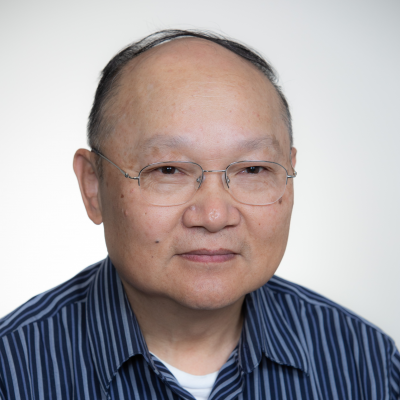 |
Ping Zhang, Associate Professor, PhD Drosophila chromosome structure and function; P element insertional mutagenesis; unusual transcriptional regulation of heterochromatin; Y chromosome genes required for spermatogenesis. |
 |
Adam Zweifach, Professor, PhD Lymphocyte physiology and cell biology; role of intracellular calcium dynamics in lymphocyte function; molecular mechanisms of exocytosis; signaling in the immune system. Zweifach Lab |
